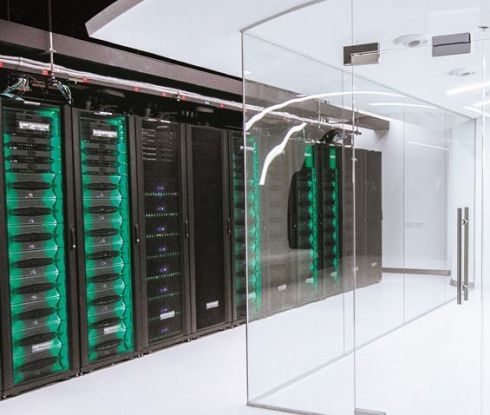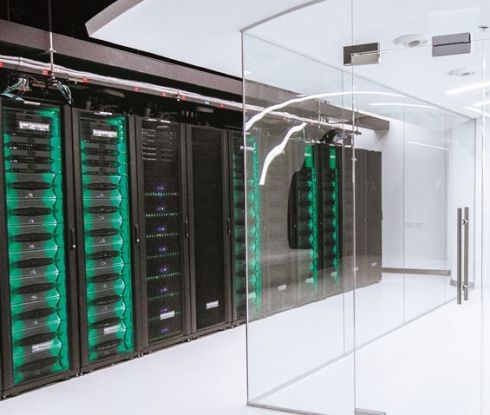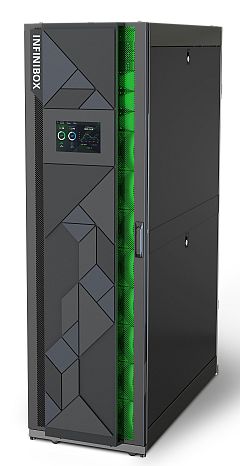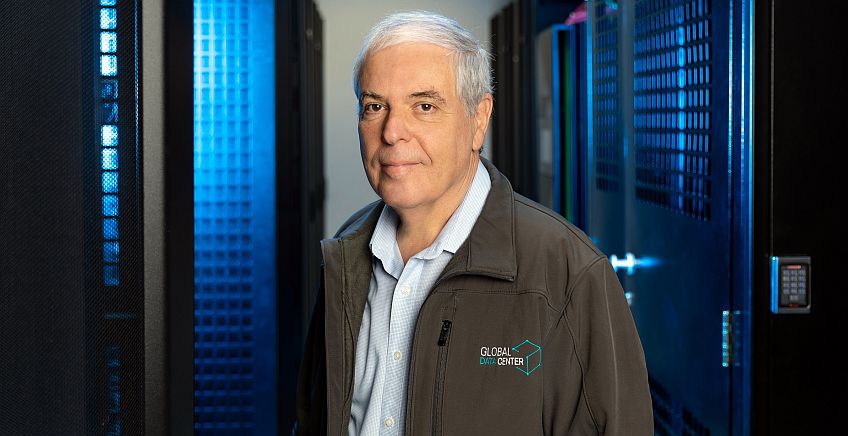Infinidat is exploring the possibilty of global production lines
15 December, 2016
Infinidat’s storage solutions are currently produced by Israeli Telad. The company is exploring the use of further global manufacturing and assembly contractors, in order to be closer to the cutomers around the globe

Infinidat’s storage solutions are currently produced by Israeli Telad. The company is exploring the use of further global manufacturing and assembly contractors, in order to be closer to the cutomers around the globe
 Herzliya, Israel based Infinidat is currently in negotiations with several global manufacturing contractors for setting up new data storage arrays assembly lines. It seems that the company is negotiating with major names such as Flextronics, Foxconn, Jabil and Sanmina. Infinidat supplies customers with full data storage arrays, including hardware and a management software for the array. The company’s solutions is a 42U storage array dubbed InfiniBox, which is designed for use in Mainframe computers by customers operating critical systems.
Herzliya, Israel based Infinidat is currently in negotiations with several global manufacturing contractors for setting up new data storage arrays assembly lines. It seems that the company is negotiating with major names such as Flextronics, Foxconn, Jabil and Sanmina. Infinidat supplies customers with full data storage arrays, including hardware and a management software for the array. The company’s solutions is a 42U storage array dubbed InfiniBox, which is designed for use in Mainframe computers by customers operating critical systems.

Currently, the company’s products are assembled Israeli Telad Company, based in Kfar-saba, Israel. Answering Techtime’s Question, Infinidat’s Israel Distribution manager Oren Yesharim said that the company is committed to continued production in Israel. Yesharim: “The Company is focusing its efforts on large markets such as Asia and North America. One of our goals is to shorten arrival times of our products. We are currently negotiating with several global manufacturing contractors, as part of a thinking process, which explores the possibility to expand our assembly, in order to widen the company’s global deployment”.
Exponential growth
Infinidat is probably one of Israel’s fastest growing high-tech companies. In the passing year for example, the number of employees doubled from 250 to about 500, 350 of which at the company’s headquarters in the Israeli high-tech hub Herzliya. The company is still I a hiring spree and has no plans to stop expanding during 2017.
This week, the company launched new offices in Waltham, Massachusetts. The 2,100 sq.m. office space will become the company’s global headquarters. The new location includes a Data Center, which will showcase infinidat’s storage solutions.
Infinidat was founded in 2010 by Moshe Yanai, who was amongst the founding partners of global EMC and the founder of XIV, acquired by IBM in 2008. Up until now, Infinidat raised more than 230 million dollars. The latest funding round took place in April 2015. During that round, the company sold 12% of its stocks to the TGP fund for 150 million dollar, according to a market cap of some 1.2 billion dollars.
Technological Chaos
According to Oren Yesharim, the company is in the black since Q3 2016, and will does not plan further funding rounds. “Our rapid growth stems from the unique strategy developed by the company”. Infinidat was based on the foundations of XIV’s senior team, experts from EMC, and even some people working on the early stages of Elbit’s symetrix platform, before it was sold to EMC”.

“In 2010, Yanay led a team studying the market in depth. The conclusion was that the storage market was in double tracked crisis: the data growth rate was much higher than the reduction in price – making storage an ever growing expense. At the same time, storage management systems were a patchwork – making life very hard for storage companies today”.
“Organizations are currently using a wide variety of storage solutions, and storage management is becoming impossible. Our solution supplies an answer to both difficulties a
t the same time. Amongst the newcomers into this market, Infinidat is the only one to enter the mainframe central computers market. In the field of critical systems, we compete with major players such as IBM, Hitachi and EMC.

A software company supplying Hardware
Israel customer support manager Ofer Tall explains that although Infinidat is actually a software company, it supplies the customer with a comprehensive data storage array managed by software – software defines storage. “We supply the customer with a stage array built from shelf products, certified by Infinidat, and managed by our software”.
“The InfiniBox databases are based on Dell servers and standard disk arrays. Our reliance on shelf products enables is to constantly supply customers with the latest technologies available – and that at a very attractive price. After being assembled, each array is tested for a period of 3-4 weeks in order to ensure its integrity, so it could be supplied as a 24×7 service system”.
“Our goal is to supply a unified, easy to manage storage array, which can be used by an organization for all its various data storage needs. Because organizations lack the ability to define which data they’ll need and when, we developed a multitude of software technologies to cope and fulfill our mission. We applied for 180 patents, 80 of which are already approved”.
“We rewrote the RAID architecture used for disk backup. Disks today are so big, that backup and recovery take a long time, in which the CPU is working hard, putting all the system at risk. Our solution enables the rebuilding of an 8 Terabyte disk within a few minutes”.
Where is the human genome stored?
Infinidat is careful not expose information concerning its customers. Most of these come from the financial, defense and critical infrastructure sectors. Amongst the company’s customers in Israel one finds Amdocs, Menora, AIG and cloud providers such as Triple C, Bezeq Int. Ofek technologies and many more. Tesla has recently announced choosing Infinidat for its autonomous car platform.
The company’s products are tested in one of the biggest database labs in the world, storing over 150 petabytes of information. According to Oren, Infinidat operated four such labs: three in Israel and one in the US. Amongst the other, one can find an InfiniBox storage array containing all of the human genome project, which Infinidat operates for the benefit of Israeli academia.
Oern Yesharim: “Moshe Yanay decided to bring this information to Israel. Because this is a massive balk of data, we had to fly the InfiniBox to London, upload the data, and fly it back to Israel”.
Posted in: Featured Stories , News , Software and IT



